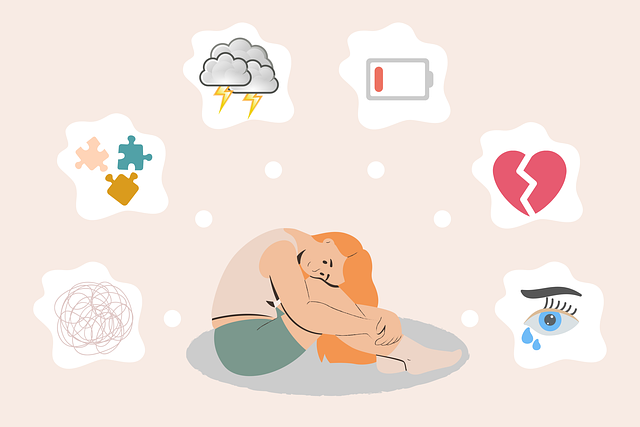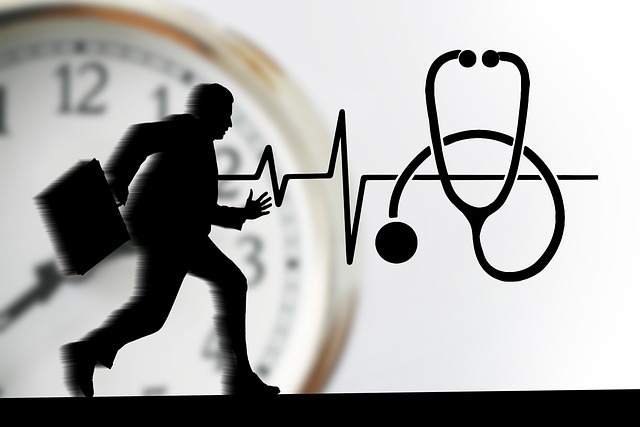Grief in adolescents is a complex issue requiring specialized therapy due to their unique emotional responses to loss. This paragraph emphasizes the importance of age-appropriate counseling techniques, such as cognitive-behavioral therapy (CBT), mindfulness exercises, art therapy, and group sessions, to help teens manage intense emotions like sadness, anger, or guilt. By providing safe spaces for expression and teaching practical pain management strategies, counselors promote emotional wellness, resilience, and healthier emotional responses in adolescents grappling with loss, ultimately facilitating their healing process.
Grief and bereavement counseling plays a vital role in helping adolescent teens navigate loss. This article delves into the unique challenges of understanding teenage grief, exploring the transformative power of therapy in managing pain and loss. We discuss effective counseling techniques tailored to meet the needs of young individuals, focusing on empowering them through this difficult journey. By implementing specialized therapy for adolescent teens, we can enhance their resilience and facilitate healthier pain management strategies.
- Understanding Adolescent Grief and Bereavement
- The Role of Therapy in Managing Pain and Loss
- Effective Counseling Techniques for Teens
Understanding Adolescent Grief and Bereavement

Grief among adolescents is a complex process that deserves specialized attention. Teenagers experience loss and bereavement in unique ways, often grappling with intense emotions like sadness, anger, or guilt. Unlike adults, they may struggle to articulate their feelings effectively due to developmental stages, making it crucial for counselors to employ age-appropriate techniques in therapy sessions. Understanding adolescent grief involves recognizing that their coping mechanisms can vary widely, from withdrawing socially to expressing their pain through creative outlets.
The challenge lies in helping teens manage their emotional well-being during this vulnerable period. Through the Mental Wellness Podcast Series Production, professionals can offer valuable insights and support. By integrating effective therapy strategies for adolescent teens, including pain management techniques, counselors contribute to mental wellness promotion. This approach ensures that young individuals receive the necessary tools to navigate their grief, fostering resilience and healthier emotional expressions in the long term.
The Role of Therapy in Managing Pain and Loss

Loss, grief, and bereavement can be overwhelming for individuals, especially adolescents and teens navigating life’s challenges. Therapy plays a pivotal role in helping them manage intense emotions and navigate this difficult journey. Through professional guidance, therapy offers a safe space for teens to express their feelings, process their losses, and develop healthy coping mechanisms. This support is crucial as it enables young people to understand and work through the emotional intelligence required to cope with grief.
One of the most effective approaches in crisis intervention is short-term, goal-oriented therapy. This helps individuals acquire practical tools for managing pain and regulating emotions during times of loss. By fostering emotional healing processes, therapy empowers teens to gradually adapt and find meaning in their experiences, allowing them to rebuild their lives after a significant loss or tragic event.
Effective Counseling Techniques for Teens

Loss, grief, and bereavement can profoundly impact teenage individuals, making it crucial to employ tailored counseling techniques that resonate with their unique emotional landscapes. Effective therapy for adolescent teens involves creating safe spaces where they can openly process their feelings without judgment. Techniques like cognitive-behavioral therapy (CBT) help teens challenge negative thoughts and beliefs about the loss, fostering a sense of empowerment in managing their pain. By teaching them emotional regulation skills, such as mindfulness and deep breathing exercises, counselors enable teens to navigate stress and prevent burnout, especially vital when considering Burnout Prevention Strategies for Healthcare Providers.
Incorporating activities that promote self-expression, like art therapy or journaling, allows teens to process grief creatively, enhancing their ability to manage intense emotions. Moreover, group counseling sessions can provide a sense of community, where teens share experiences and discover they are not alone in their journey. These strategies collectively contribute to healthy emotional development, equipping teens with lifelong tools for stress management and emotional regulation.
Loss, grief, and bereavement can profoundly impact adolescent teens, making therapy an essential tool for managing pain and facilitating healing. Understanding teenage grief and employing effective counseling techniques can help professionals navigate this sensitive process. By integrating tailored support, teens can develop coping strategies to process their loss, enhance resilience, and find meaning in their experiences. Effective pain management through therapy empowers adolescents to move forward with improved emotional well-being and a stronger sense of self.










